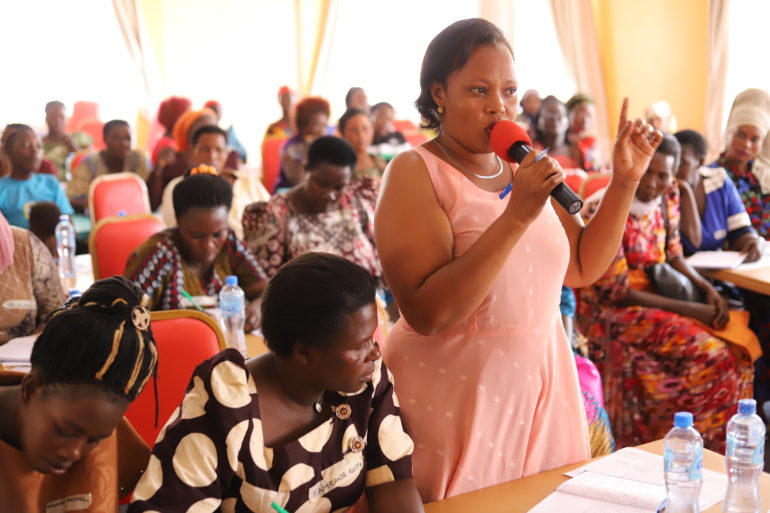Community Awareness and Accountability Dialogues; Arua, Kapelebyong and Kassanda Districts.
As we continue working towards improving women’s engagement and influence on electoral processes with the support of the Democratic Governance Facility (DGF), The Peace Centre through the Community Development Office and National Women Council structures mobilized the community members to participate in the awareness and accountability dialogues at the community level in the three Districts of Arua, Kassanda and Kapelebyong.
Community awareness and accountability sessions are platforms that provide opportunities for people at the grassroots to interact with their leaders on key pertinent issues in relation to service delivery. Accountability is about involving citizens and communities in the processes of governance so that the decisions and actions of the people and organizations with power are made public and can be questioned. This not only improves governance but also leads to better service delivery and to community empowerment.
The dialogues aimed at creating space for community members to discuss issues of concern in the ongoing electoral processes in their areas and to make policy recommendations for action by the different stakeholders. The Peace Centre also used the platform to identify women leaders within the community that can participate as violence monitors, election monitors and the youth to serve as data analysts.
In Arua District, the dialogue was conducted in River Oli division, Osu cell, Arua municipality. Some of the issues raised included voter bribery, empty promises to voters, threats and intimidation from candidates.
“Please continue educating us, our elections here are terrible! May be when you come and educate us they will be peaceful” – Clara
“I am happy the project has come! I expect more peace in elections this time, Last time my eye was badly hit and injured during campaign time yet I am living positively for 25 years now” – Lucy
“We as women have been used as ladders in voting, they open windows and greet every one during campaign time but when we vote for them they close the windows and pretend not to know us, we should stop voting for such people” – Rebecca
In Kapelebyong, the dialogues were held at Acowa sub-county headquarters. Key issues identified also included voter bribery, intimidation, heavy deployment at polling stations.
“They told us to form women groups in order to be supported but ever since we voted for them, we have never seen them and have never benefited anything” Florence Akello
“Here a parish supervisor on his way to the polling station was hijacked by a candidate and beaten seriously, so women fear to take on such roles for the safety of their lives” Isaac
Women fear to be election monitors and supervisors for fear of intimidation from candidates
Recommendations from the dialogues included; Intensive civic education emphasizing voter education, install cameras around polling stations to survey the entire voting process leading to reliable information sources in case of any irregularities, voter bribery should stop and every political aspirant should be investigated to find out where they get the huge sums of money that they pour in their election campaigns.

